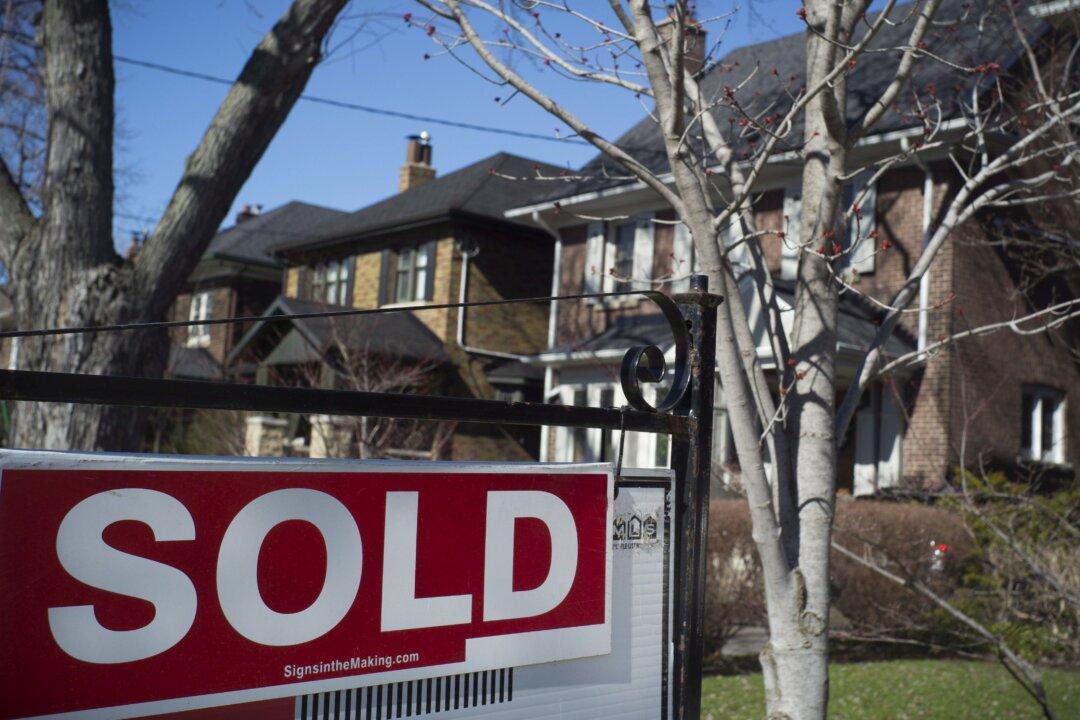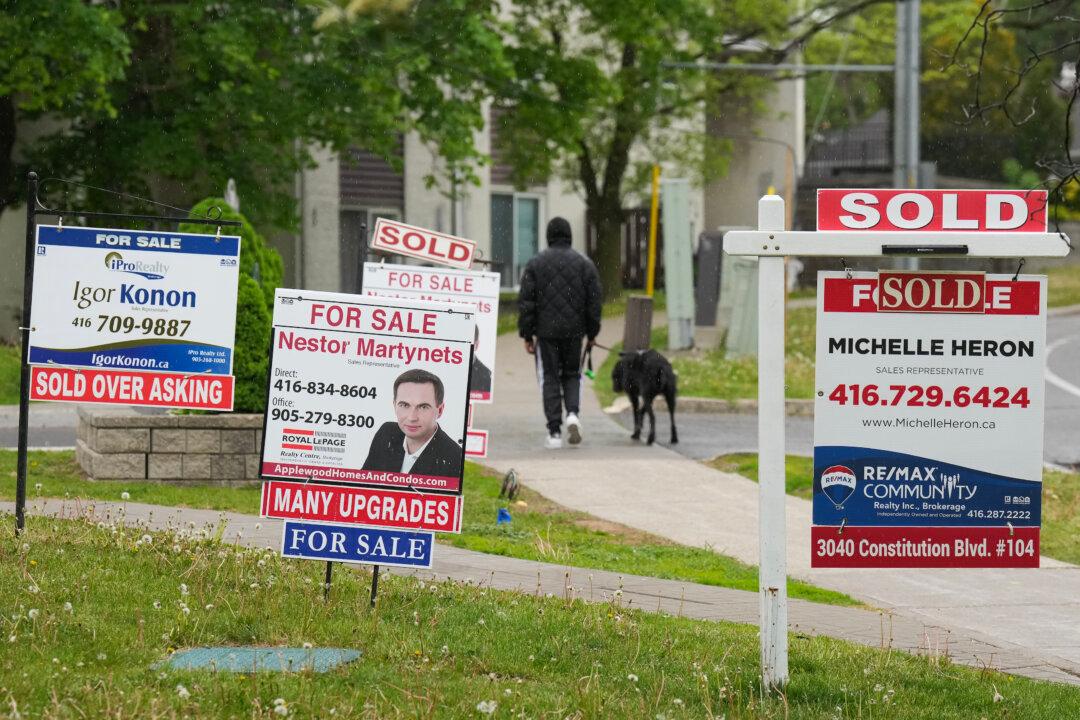Mortgages coming due for renewal are staring down a hostile interest rate environment, and industry experts have told The Epoch Times that borrowers are in for a world of hurt.
“We’re looking at people getting renewal offers that are in [ranges of] 7 percent, high-sixes, mid-sixes—we used to have some rates that were in the fives; people could jump to [the] high fives, but that’s all gone,” said Ron Butler, owner of Butler Mortgage.




